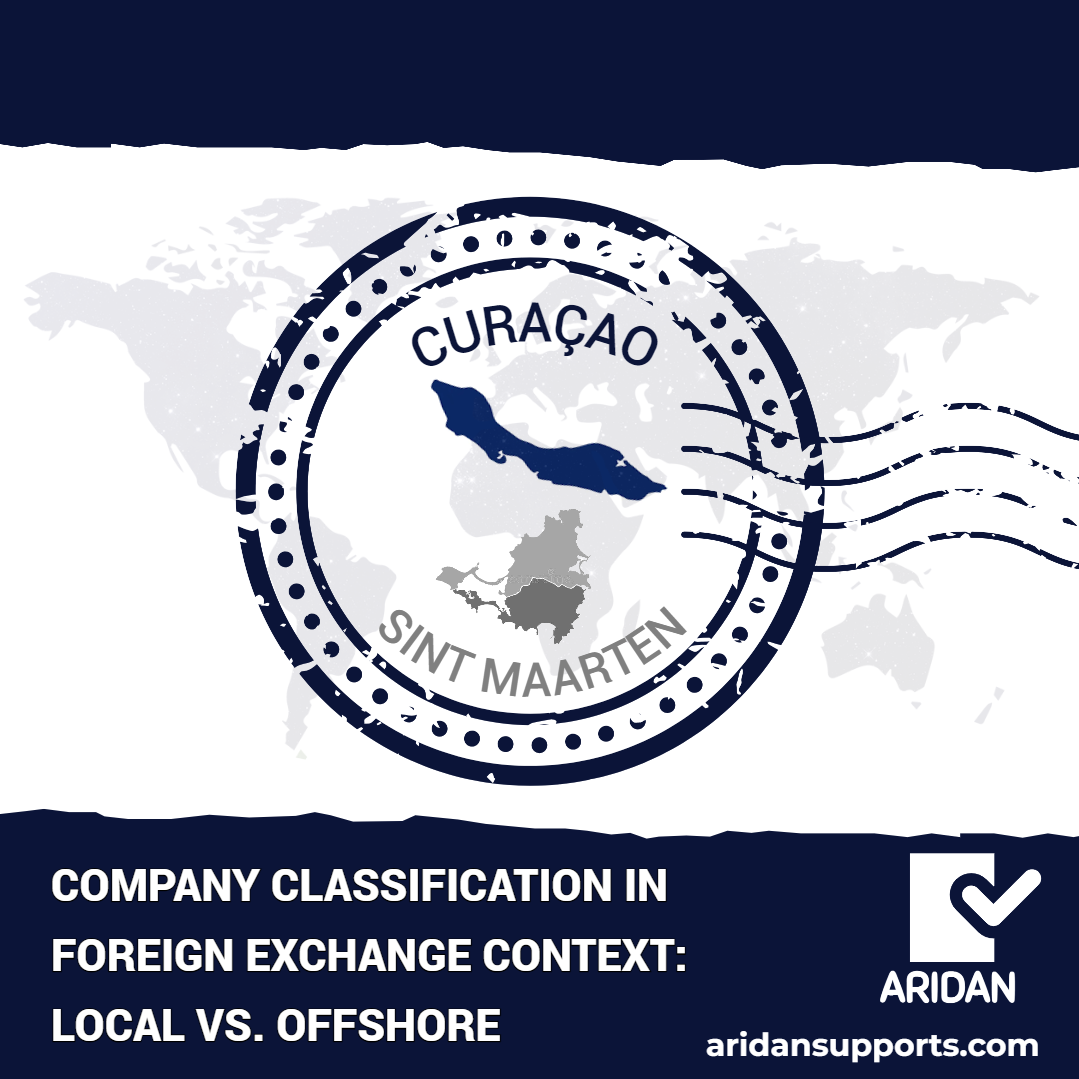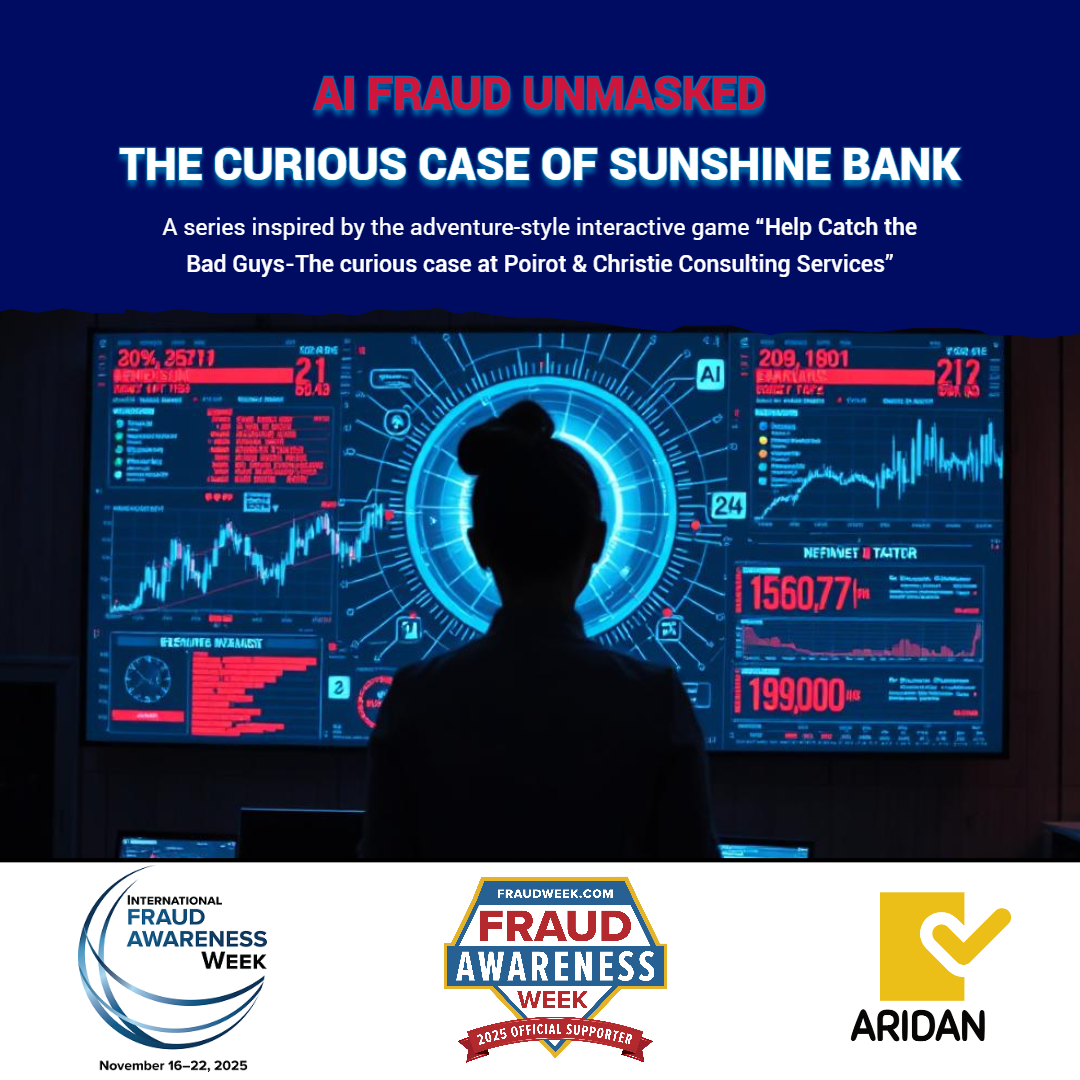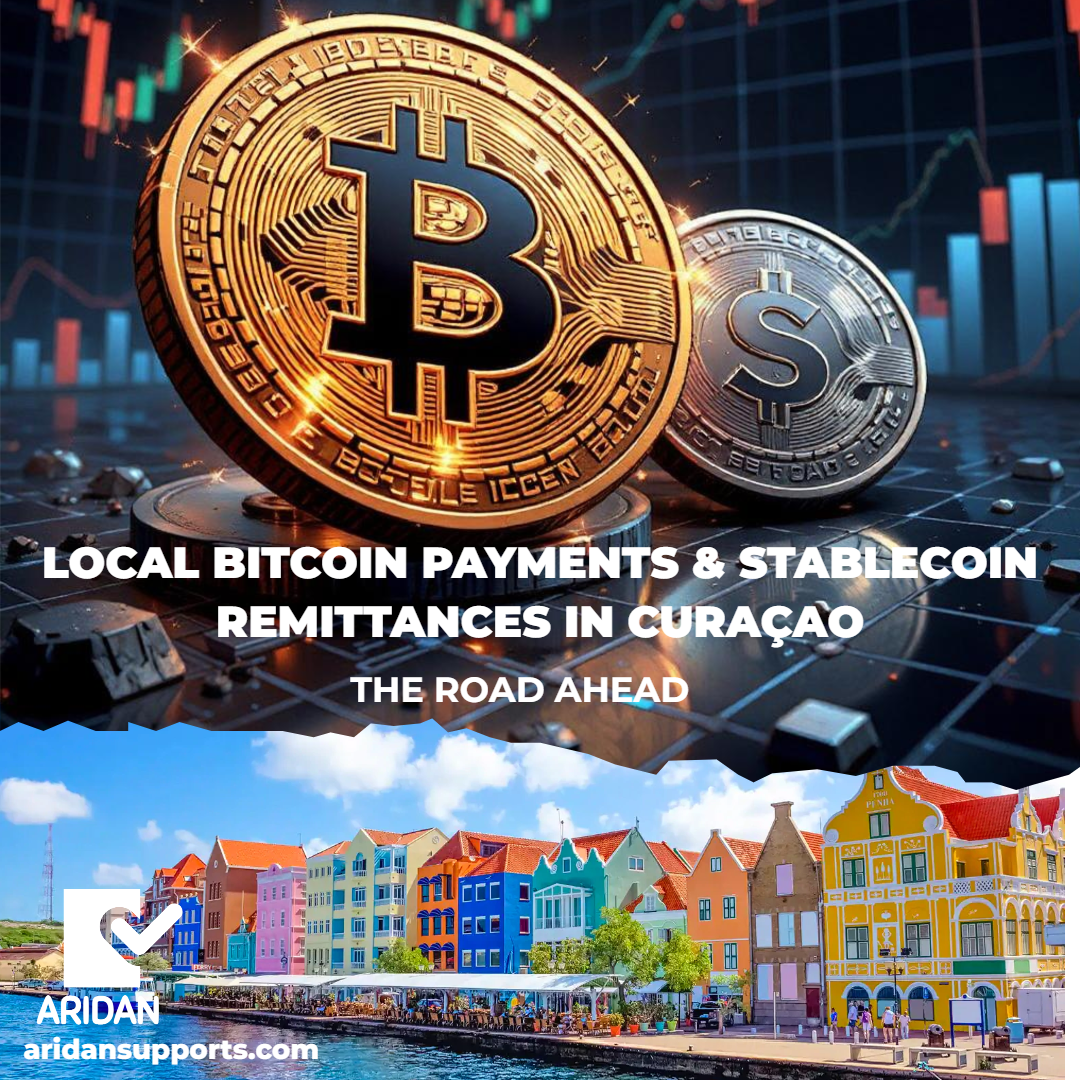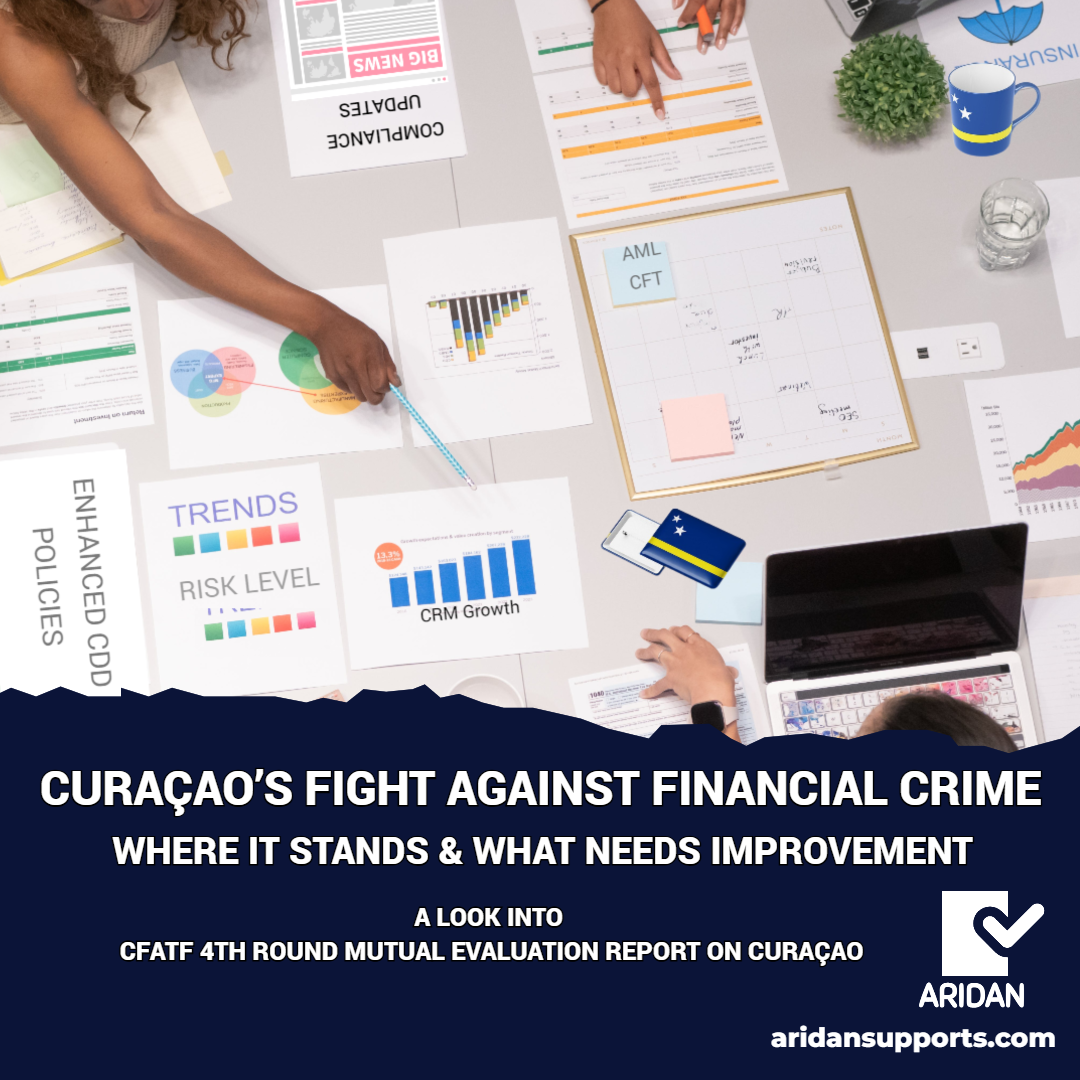Determining whether a company is classified as local or international (offshore) is a common challenge for many business owners in Curaçao and Sint Maarten. This distinction can often be confusing due to the specific legal and regulatory frameworks governing each entity type.
The classification of a company has far-reaching implications, influencing not just how it operates, but also how it interacts with local authorities and financial institutions. Key considerations include ownership structure, where the business activities are conducted, and whether the company deals primarily with local or foreign currency.
Understanding whether a business is considered local or offshore is crucial, particularly in the context of foreign exchange regulations. These regulations dictate how companies engage in cross-border financial transactions and manage foreign currency. A company’s classification affects whether it requires a foreign exchange license and what regulatory exemptions it may qualify for.
In Curaçao and Sint Maarten, correctly understanding the foreign exchange regulatory framework is essential to ensure compliance and avoid unnecessary legal complications. Let’s explore the key differences between local and offshore companies to provide a clearer understanding.
WHAT IS A LOCAL COMPANY?
A local company operates within Curaçao or Sint Maarten, with its registered office or primary place of business located there. These companies must meet two main criteria:
- They are 100% owned by residents.
- They operate locally, with their business activities focused on Curaçao or Sint Maarten.
Local companies usually do not need a foreign exchange license if they conduct business solely in the local currency. However, if a local company starts dealing with foreign currencies—especially in significant amounts—it must follow foreign exchange regulations and may require a foreign exchange license.
Several variations of foreign exchange licenses can be requested including licenses for direct investment, foreign bank accounts, intercompany accounts, loans, NAf accounts for non-residents with a balance > NAf.250.000, non-resident local accounts for Trust companies or Stichting Derdengelden, other capital transactions, foreign securities investment, and distribution of profits or dividends.
WHAT IS AN INTERNATIONAL (OFFSHORE) COMPANY?
An international (offshore) company also operates out of Curaçao or Sint Maarten, but its structure and ownership differ from that of a local company. Offshore companies are typically:
- Incorporated for non-residents.
- Classified as non-resident legal entities, meaning that their operations and benefits are largely for non-residents.
Under the Foreign Exchange Regulation 2010, offshore companies are exempt from certain provisions, making their foreign currency transactions more flexible. However, they must comply with all application requirements to benefit from these exemptions.
KEY CHARACTERISTICS OF OFFSHORE COMPANIES
According to the foreign exchange regulations for Curaçao and Sint Maarten, an offshore company is:
- A public limited company or private limited company established in either Curaçao or Sint Maarten.
- Its operations, as defined by the company’s Articles of Incorporation, are carried out for the benefit of non-residents or for the company itself.
- The company’s shares are owned by non-residents, or by companies considered non-residents under these regulations.
UNDERSTANDING UBOS AND THEIR IMPACT
Ownership of a company is not always straightforward. The status of a company (local or offshore) in the context of foreign exchange regulations can depend on the residency status of its Ultimate Beneficial Owners (UBOs)—those who ultimately own or control the company.
Examples:
- If a locally established company has three resident UBOs and one non-resident UBO, it is considered an international (offshore) company.
- Conversely, a company with three non-resident UBOs and one resident UBO is also classified as an offshore company.
EXEMPTIONS FOR CERTAIN FOUNDATIONS
Some organizations, like Private Fund Foundations (SPFs), may also qualify for special exemptions under foreign exchange laws. These exemptions allow them to handle foreign currency transactions without needing a license, simplifying their financial operations.
FINAL THOUGHTS
Understanding whether a company is classified as local or international (offshore) is essential for ensuring compliance with the foreign exchange regulations that govern Curaçao and Sint Maarten. Local companies, which focus primarily on domestic operations and transactions in local currency, tend to have fewer regulatory requirements when it comes to foreign exchange.
However, the moment a company expands its activities to involve significant foreign currency transactions, additional rules come into play. Offshore companies, on the other hand, are structured with non-resident ownership in mind and are designed for international operations. These companies benefit from specific exemptions, provided they meet the necessary regulatory conditions, making them more suited for cross-border financial activities.
Properly classifying a company as either local or offshore is more than a regulatory formality; it shapes how the business operates within the legal frameworks of Curaçao and Sint Maarten. Companies that understand and adhere to the correct classification can take full advantage of the financial and operational benefits available to them, such as exemptions from certain foreign exchange provisions.
Additionally, they avoid potential penalties or legal complications that arise from non-compliance with the foreign exchange regulations. By navigating the classification process carefully, businesses ensure smoother operations, both locally and internationally, and maintain a strong foundation for growth and success in the region’s dynamic business environment.
Sources
Centrale Bank van Curaçao en Sint Maarten. (2010). Foreign exchange regulation Curaçao and Sint Maarten 2010. English Version. Retrieved on August 8, 2024, from https://cdn.centralbank.cw/media/legislation_guidelines/20190120_foreign_exchange_regulation_curacao_and_sint_maarten_2010.pdf
Centrale Bank van Curaçao en Sint Maarten. (2017). Foreign Exchange Regulation 2017. English Version. Retrieved on August 8, 2024, from https://cdn.centralbank.cw/media/legislation_guidelines/20190120_foreign_exchange_regulation_2017.pdf
Centrale Bank van Curaçao en Sint Maarten. (2024). Foreign Exchange Regulation 2024. Retrieved on August 8, 2024, from https://cdn.centralbank.cw/media/legislation_forex/20240930_foreign_exchange_regulation_2024.pdf
Centrale Bank van Curaçao en Sint Maarten. (n.d.). Policy memorandum on offshore companies. English Version. Retrieved on August 8, 2024, from https://cdn.centralbank.cw/media/legislation_guidelines/20190120_policy_memorandum_on_offshore_companies.pdf
ARIDAN. (2024). Understanding the landscape of Curaçao’s foreign exchange policies. Retrieved on August 8, 2024, from https://aridansupports.com/understanding-the-landscape-of-curacaos-foreign-exchange-policies/








